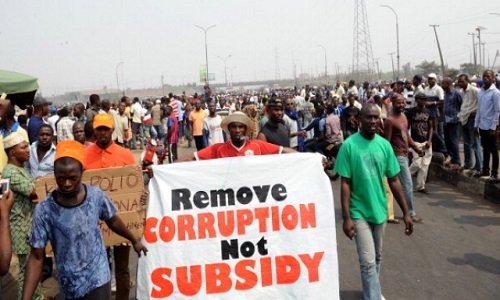 The right time for President Muhammadu Buhari to remove fuel subsidy if he is desirous of doing so is now, the World Bank has said.
The right time for President Muhammadu Buhari to remove fuel subsidy if he is desirous of doing so is now, the World Bank has said.
The World Bank’s Lead Economist, Nigeria country office, John Litwack, said Tuesday at the launch of the new edition of Nigeria Economic Report that if the government really meant to take a decision on the issue of fuel subsidy removal, the best time to act would be now that global crude oil price was at its lowest level.
The call came on the heels of last Friday’s attempt by the Organisation of Petroleum Exporting Countries, OPEC, during its 168th conference, to maintain its production quota so as to stabilize the crude oil market.
The price of crude oil in the international market is slightly below $38 per barrel, its lowest in seven years.
While presenting the economic outlook of the global economy and the crude oil market, Mr. Litwack said the World Bank foresaw continuous decline in global crude oil price.
According to him, now is the best time for the government to scrap the subsidy, as doing so would not push retail pump price beyond an average of N100 per litre, or generate the kind of pressure that would negatively impact on the people beyond what they are currently facing.
“The fuel subsidy appears to have vast modest benefits for the majority of citizens, but the costs are quite high”, Mr. Litwack noted.
“There is a strong tendency for the cost of the fuel subsidy to increase over time as increasing domestic demand for petrol outpaces growth in oil output or revenues.
“The $35 billion cost of the fuel subsidy during 2010 – 2014 was one of the reasons why Nigeria was unable to accumulate a fiscal reserve in the Excess Crude Account that could have protected the country from the recent oil price shock”.
Mr. Litwack further stated that fuel subsidy obligations were expected to reach 18 per cent of all government oil revenues in 2015, pointing out that if the current regulated price regime of N87 per litre was maintained, subsidy was projected to increase to more than 30 per cent by 2018.




